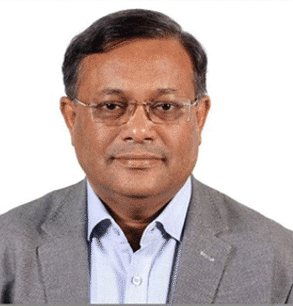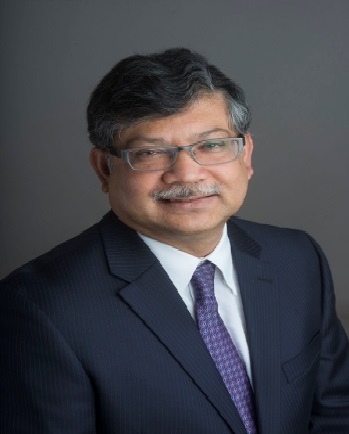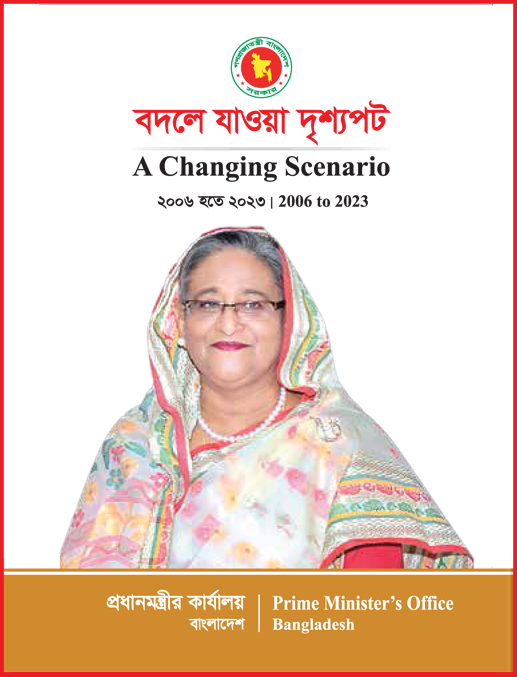Statement by H.E. Dr. A. K. Abdul Momen, MP Hon’ble Foreign Minister
Mr. Nahim Razzaq, MP,
Mr. Abul Kalam Azad, Special Envoy of Bangladesh Presidency of the CVF,
Distinguished Guests,
Ladies and Gentlemen,
Assalamualaikum, Peace be upon you.
We know the consequence of Chernobyl nuclear accident, we know Hiroshima and Nagasaki or Bhopal, India where thousands die instantly. However, the emerging Challenge, the Climate Change is not killing us in a blast like Hiroshima, yet millions will lose their comforts in life and living due to it. Therefore, I am pleased to attend “Climate Camp 2021” organised by The Earth to focus on resetting our relations with nature to fight against the adverse impacts of climate change. I thank “The Earth” for inviting me today, especially on the occasion of the World Environment Day during this critical period when Covid-19 pandemic and climate emergency have brought together unprecedented challenges.
Dear participants,
2. Climate change is a global phenomenon that needs to be addressed through collective efforts and innovative solutions not only internationally or nationally, but also in the local and regional levels. The impacts of climate change on the environment, peoples and economies are being felt by every country on earth. Bangladesh is one of the most vulnerable countries to the adverse impacts of Climate Change. The country is experiencing extreme climate change impacts that are affecting national economy and development as well as lives and livelihoods of the people. Many people are being uprooted from their sweet homes and traditional jobs due to river erosion and erratic climate change.
Ladies and Gentlemen,
3. In recent years, extreme weather situations like extreme heat, intense precipitation, and drought have become more frequent and severe in Bangladesh. Moreover, floods and flash flood, tropical cyclones, storm surges, landslides, droughts are being felt severely and likely to become more repeated phenomena and severe in the coming years. Also, Bangladesh is a low lying country having 19 coastal districts with a 42 million population, which are under threat due to climate change and subsequent sea level rise, cyclones, tidal surge and permanent inundation. Significant number of people are becoming climate migrants inside Bangladesh because of river erosion. These changes will affect and slow down the significant achievements that Bangladesh has made over the last decade in improving economic and social aspects. Achieving the SDGs will also become more challenging. Moreover, we are facing serious climate impact because of 1.1 million forcefully displaced Rohingyas.
Dear Participants,
4. On the other hand, the outbreak of COVID-19 pandemic has brought greater negative impact on livelihoods of the people as well as economy of Bangladesh. Even during COVID 19, Bangladesh has experienced severe flood due to the climate change. Heavy monsoon rains in upstream regions continue to cause flooding in 30 districts in the north, north-west and south-west of the country, affecting 54 million people. Flooding has damaged houses, dykes and embankments, water sources, hygiene facilities, and has severely impacted livelihoods, especially in the agricultural sector.
Distinguished Discussants,
5. The UN Decade on Ecosystem Restoration is being launched with efforts to halt and reverse the decline of the natural world. Since the pandemic disrupted normal lives, the most important challenge will be to balance the relationship between human systems and natural systems. The theme of this year, Ecosystem Restoration, “aims to prevent, halt and reverse the degradation of ecosystems on every continent and in every ocean," according to the UNEP. Ecosystem restoration means preventing, halting and reversing this damage – to go from exploiting nature to healing it. This will help in tackling poverty and combat climate change and taking the theme forward will be successful only if there is people's participation. Bangladesh strongly believes that only with healthy ecosystems can we enhance people’s livelihoods, counteract climate change and stop the collapse of biodiversity.
Distinguished Discussants,
6. Bangladesh is the victim of the effects of global pollution without being a polluter. Every year we are spending an average 2.5 percent of our GDP – about 5 billion dollars – on climate adaptation and resilience-building.
Ladies and Gentlemen,
7. Here I would like to share with you some of the important policy initiatives taken by the Government to address the challenges of climate change under the dynamic leadership of the Hon’ble Prime Minister Sheikh Hasina. These are:
1. Bangladesh is pursuing a low carbon development path. To substantially raise our Nationally Determined Contribution or NDC and adaptation ambition, we have further included new sectors in addition to the existing energy, industry and transport sectors in the mitigation process.
2. We are planning to submit a quantified ambitious NDC by June 2021. We also announce our Net Zero target in the near future. We were the first LDC to set up our own Climate Change Trust Fund from our own resources back in 2009. Neary 450 million dollars have been allocated to this fund since then. A total of over 800 projects have been taken under this initiative of which around 400 have been completed.
3. We are working on formulation of a National Adaptation Plan (NAP) which will enhance climate resilience of the country. We hope to complete it by this year.
4. Recently the Government has adopted a 20-year National Solar Energy Action Plan (2021-2041) that envisages up to 40 giga watts of renewable energy generation capacity by 2041.
5. Over the last few years, we have installed more than 5.8 million solar home systems in off grid areas of the country ensuring supply of solar electricity to 18 million people i.e., 12 per cent of the country’s total population.
6. To promote energy savings and to improve energy intensity in 2030 by 20 per cent compared to the 2013 level, we adopted the “Energy Efficiency and Conservation Master Plan up to 2030” in 2015.
7. A major transformation is on-going in Bangladesh in transport sector. Mass Rapid Transit (MRT) and Bus Rapid Transit (BRT) are being introduced in Dhaka which will significantly reduce pollution in Dhaka Metropolitan Area.
8. In Bangladesh, we are observing the birth centenary of the Father of the Nation Bangabandhu Sheikh Mujibur Rahman by planting almost 30 million saplings nationwide. We are going to implement the ‘Mujib Climate Prosperity Plan’ to achieve low carbon economic growth.
Ladies and Gentlemen,
8. We need to go further in the area of mitigation. To protect our people from getting inundated by sea level rise and river erosion, and from becoming climate migrants, we need to create embankments high enough and wide enough to sustain natural disasters. Forestation of mangrove around these embankments will work both as buffers during the natural calamities like cyclones and surges and will also work as carbon sinks. You are probably aware that the roots of the mangrove trees can absorb and contain carbons, I am told, for up to 22 years. We can also use the space on the embankments for installing solar panels and wind turbines to provide electricity to nearby off grid areas, and also to supply to the national grid. In addition, a beautiful road on the coastal embankment will be a scenic road that will create jobs for tourism.
9. The Government of Bangladesh is doing its best to tackle the climate challenges. It’s national parliament declared it as a” Planetary Emergency”. In addition to that, I strongly believe that participation from the youth and civil society in collaboration with the government can bring the best result for Bangladesh to achieve sustainable solutions. To create awareness at community level is the first step to bring result in national level where individuals, activists, community leaders and youth led organisations can bring solutions through sharing best practices for better adaptation and mitigation. We must take the opportunity to build back better for a sustainable, prosperous and resilient future through shared responsibility and concerted actions in climate area.
Ladies and gentlemen,
We as individual, also should stop polluting our environment and neighborhood, and, stop discharging chemicals into rivers and ponds. Please, don’t throw plastic items, plastic bottles, polythene bags indiscriminately, stop food waste and food loss, and try to conserve natural resources to help biodiversity. If we all do our part, we are little careful and conscious, we can help our planet earth. Let’s remember:
“ Little drops of water
Little grains of sand,
Make the mighty ocean
And the peasant land.
No wonder your help will save our wonderful planet.
I thank you all.













